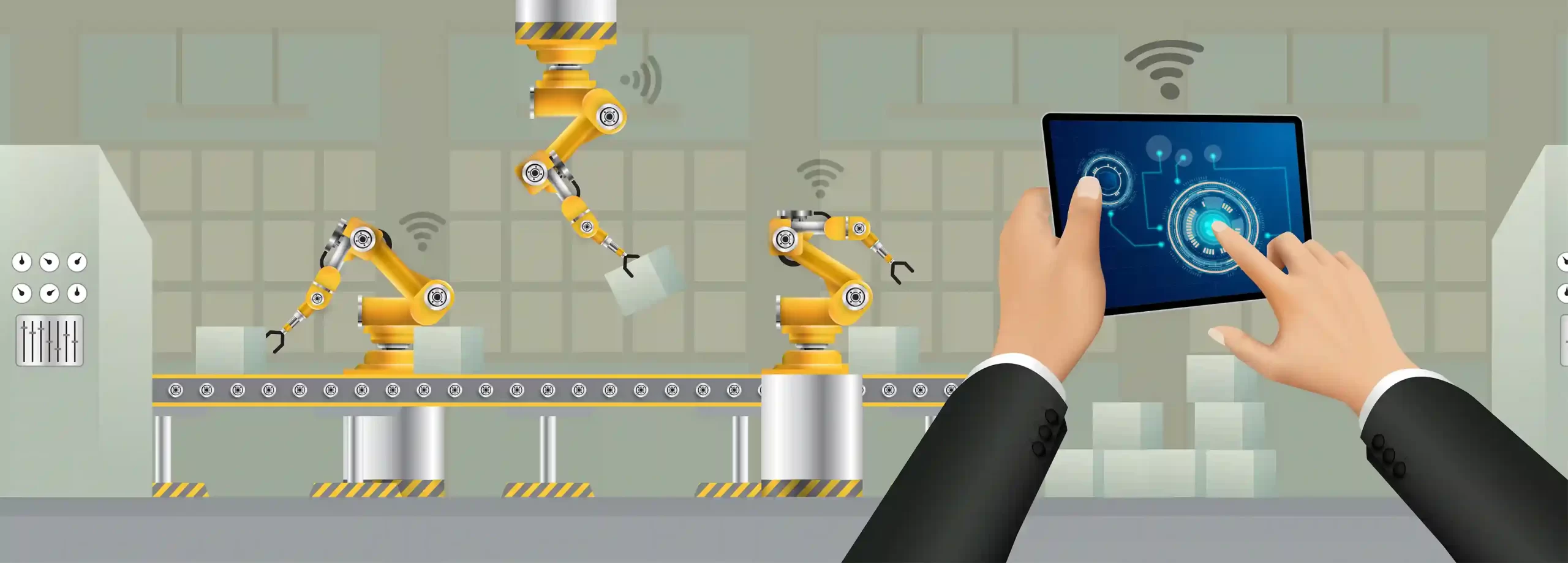8 Ways Machine Learning is Leading the Future of Manufacturing
Author: Inza Khan
22 August, 2024
The integration of machine learning into manufacturing processes is changing the industry, enabling smarter, more efficient, and agile production. Machine learning empowers manufacturers to utilize the power of data, offering predictive insights and optimizing operations in ways that were previously unimaginable.
This blog explores how machine learning is paving the way for a new era of smart and sustainable industrial practices.

The Rise of Smart Manufacturing
The manufacturing industry has undergone a remarkable shift in recent years, marked by the emergence of “smart manufacturing” – a concept that utilizes the power of data-driven technologies to optimize production processes. At the heart of this transformation lies machine learning, a versatile tool that enables manufacturers to extract valuable insights from the vast troves of data generated by their operations.
1. ML Boosts Supply Chain Agility
Machine learning algorithms can forecast demand with greater accuracy than traditional methods by leveraging historical data and external factors. This enhanced demand forecasting allows manufacturers to optimize inventory levels, minimize waste, and ensure the timely delivery of materials and components. In this way, manufacturers can quickly adapt to shifting market conditions and customer needs with improved visibility and responsiveness.
2. Automated Decisions for Faster, Smarter Operations
Machine learning-powered systems are improving decision-making in manufacturing. From automated production scheduling and resource allocation to real-time adjustments in the production line, ML models can make data-driven choices faster and more consistently than human operators. This increased speed and efficiency leads to reduced costs, improved productivity, and greater flexibility in adapting to dynamic market demands.
3. ML Supports a More Adaptable Workforce
Machine learning can also contribute to workforce optimization in manufacturing. By analyzing factors such as employee performance, absenteeism, and skill sets, ML models can help organizations make more informed decisions about workforce planning, training, and resource allocation. This can lead to improved productivity, better employee engagement, and a more efficient and adaptable workforce – a critical advantage in an industry facing labor shortages and the need for rapid adaptation.
4. Predictive Analytics for Business Insights
Manufacturers can gain valuable insights into their operations, customer behavior, and market trends by utilizing the power of machine learning. ML-based predictive analytics can help identify opportunities for cost savings, process improvements, and new product development. These data-driven insights empower decision-makers to make more informed strategic choices, positioning their companies for long-term success in the industry.
5. Personalized Production and Customization
Machine learning-driven systems can also analyze customer preferences and adapt production processes to deliver personalized products and experiences. This level of customization allows manufacturers to meet the demands of their target markets, stay ahead of the competition, and build stronger, more loyal customer relationships.
6. Reduced Energy Consumption and Sustainability
Machine learning algorithms can optimize energy usage in manufacturing facilities, leading to significant reductions in energy consumption and greenhouse gas emissions. ML models can identify opportunities for energy-efficient adjustments, such as optimizing equipment schedules, adjusting HVAC settings, and implementing predictive maintenance by analyzing data from sensors and building management systems. This helps manufacturers minimize their environmental impact and contribute to more sustainable industrial practices.
7. Improved Safety and Regulatory Compliance
Machine learning can also enhance safety and regulatory compliance in manufacturing. ML-powered systems can detect potential safety hazards and anomalies, enabling proactive interventions and ensuring compliance with industry standards and regulations by monitoring worker behavior, equipment performance, and environmental conditions. This not only protects workers and assets but also helps manufacturers avoid costly fines and reputational damage.
8. The Human-Machine Collaboration
The most successful smart manufacturing initiatives are those that strike the right balance between automated, data-driven processes and the invaluable insights and problem-solving skills of human workers. Machine learning algorithms can surface powerful insights and make rapid, data-informed decisions, but human operators maintain a critical role in interpreting those insights, identifying nuanced patterns, and exercising judgment in complex or ambiguous situations. This human-machine partnership allows manufacturers to capitalize on the distinct strengths of both.
Conclusion
At Xorbix Technologies, we are committed to helping you navigate this transformation in the manufacturing industry. Our expertise in machine learning solutions enables us to provide you with the tools and insights necessary to optimize your production processes, enhance product quality, and drive innovation. By partnering with Xorbix, you can leverage our cutting-edge technologies and industry expertise to stay competitive and lead the way in the future of smart manufacturing.
Read more on related topics:




